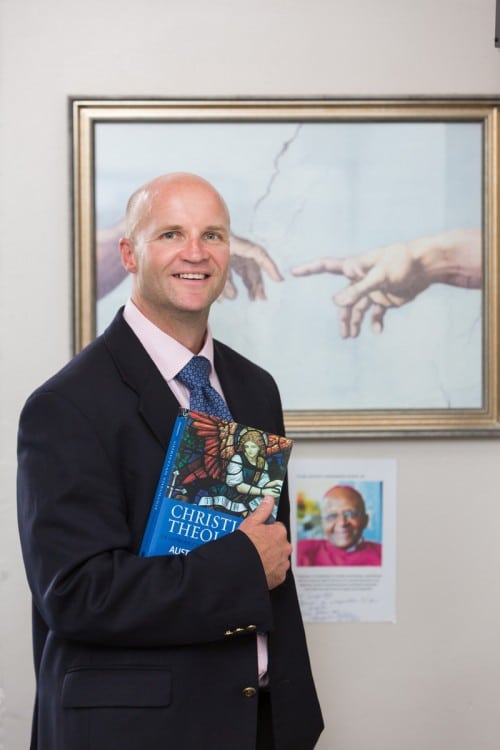The study of Religion and Philosophy entails the intellectual exploration of the beliefs and theories that have played a vital role in shaping our society and culture over the centuries.
Human beings are engaged in a search for meaning and truth; studying this course will give you an opportunity to examine some of the answers to life’s fundamental questions and to examine them in a critical and academic manner; gaining an appreciation of religious and cultural diversity.
In Year 9, pupils will have an introduction to the GCSE course by studying Theme D (Religion, Peace and Conflict) which focuses primarily on pacifism and just war theory and touches on weapons of mass destruction, different forms of protest, the effects of war, forgiveness and reconciliation. They then consider the more philosophical Theme C which covers the traditional arguments for and against the existence of God. Finally, they will be exposed to the historical Jesus of Nazareth and attempt to understand the politics and history of first century Judea. Time permitting, we may look at Buddhism, which is an excellent gateway to discussing philosophical issues such as the nature of reality and life after death.
In the GCSE years, pupils study two religions in more depth: Christianity and Islam, and apply these to contemporary philosophical and ethical issues including medical ethics (abortion and euthanasia), crime and punishment, war and peace, and issues surrounding equality and religious freedom. Non-religious views are also considered. This is a great opportunity for pupils to engage in current debates and further their study of religion, philosophy and ethics. We follow the AQA Religious Studies A Specification.
The course gives you the opportunity to explore religion, philosophical theories and ethical practices as you engage with the scholars of the past and the present in a rational and critical environment, whilst giving you the chance to develop your own answers to the questions that our modern multicultural society asks. This subject is not just for those with a personal faith but for anyone who is interested in gaining insight into the reasons why society is as it is and the fundamental questions that lie behind human existence.
Students will ideally have a GCSE in Religious Studies. However, the course is still accessible to those not having studied the subject for GCSE (approximately 40% of our students did not study the subject for GCSE).
We follow the OCR Religious Studies A-Level course. There are three areas of study (each taught by a different teacher):
Philosophy of Religion
Key ancient philosophical ideas that have influenced our understanding of the world around us, including:
- Plato and Aristotle.
- Arguments about the nature and existence of God as well as the language we use to describe God.
- The nature of soul, body and mind.
- The problem of evil and suffering; if there is a God why is there so much evil and suffering?
Religion and Ethics
Key ethical theories that have influenced our understanding of right and wrong, including:
- Natural Law, Situation Ethics, Kant and Utilitarianism.
- Highly relevant, contemporary ethical issues, including sex and sexuality, euthanasia and business ethics.
- The nature of religious and ethical language: why do we use the language we do? Does it have any meaning?
Religious Thought
Key Christian beliefs, values and teachings and how these vary historically and in the contemporary world.
- Arguments about the nature and existence of life after death.
- Practices that shape and express religious identity and how these vary in different traditions.
- The relationship between religion and society, including issues such as feminism, liberation theology and extremism.
Each area is assessed by a two-hour exam (with the student writing three essays per paper) at the end of the two year course.
Trips & Events
Each year we take the Upper Sixth to Peter Vardy’s Candle Conference, either in London or Oxford. This is a very good revision opportunity and is excellent preparation for the exam. We also hope to run a trip to the British museum in London, as well as a Lower School trip to a local mosque.
Beyond School
Many people ask what taking Religion and Philosophy at A Level can lead to. Well, the reality is, just about anything! Universities consider the subject as a rigorous academic A Level that requires excellent analytical skills, ability to communicate ideas and an openness and willingness to discuss important issues.
A degree in Philosophy, Religious Studies or Theology will equip students for fast-track management training programmes with major companies as well as any number of employment opportunities including business, politics, accounting and finance, teaching and lecturing, social work, the armed forces, the police and medicine. The course suits anyone with an enquiring mind and openness about the world around them. There will be lots of opportunities to discuss and debate challenging issues.
Head of Religion & Philosophy
Brett Hopcroft
Head of Religion and Philosophy










